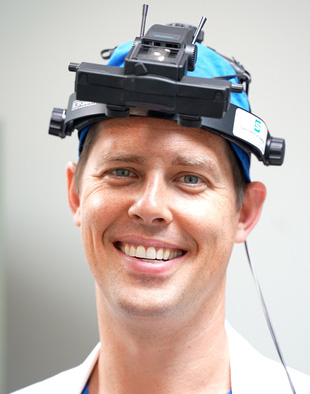Cataracts are a common condition, especially for people over the age of 40. Sometimes, cataracts don’t impede vision, but they can be the cause of major vision problems (and even blindness). If you’re suffering from cataracts that are impacting your eyesight, having them surgically removed is currently the only treatment option available. The good news is cataract surgery is very routine and nothing to be afraid of. Here’s what you need to know.
What is Cataract Surgery Like?
Cataract surgery is considered one of the safest and most common procedures in the nation. Chances are, your surgeon has already done this procedure hundreds or even thousands of times before, which means they know exactly what they’re doing. Additionally, the surgery itself is simple and short, only taking about 30 minutes in most cases.
During the surgery, you will be awake, but an anesthetic may be used to keep you comfortable. You may also receive a sedative to help you relax. Special eye drops will be used to numb your eyes, which is all that’s required to conduct the procedure.
During the surgery, the cloudy lens of your eye will be removed, and it will be replaced by an artificial lens, known as an intraocular lens (IOL), which will restore your vision.
“We now have the wonderful ability to take a patient and take their diseased lens out and put a brand new, fresh one in that is artificial. But that artificial lens lasts as long as the patient is alive and gives them much, much better vision.” – Marnix E. Heersink, M.D.
It’s safe, fast, and completely painless.

Recovering From the Procedure
Due to the extremely low risk of complications, cataract removal is an outpatient procedure, which means you can go back home the same day. For a week or two after your surgery, you’ll need to take antibiotics and anti-inflammatory eye drops to keep your eyes healthy during recovery.
As your eye heals, your doctor may advise you to avoid pressing or rubbing on it. They may also give you a list of guidelines to avoid getting water in your eye. You may be given a protective shield to wear while you sleep.
The biggest risks following surgery include swelling and infection. The eye drops your doctor gives you will help prevent these things, but if they occur, your doctor will address the symptoms promptly at a follow-up appointment. The success rate of cataract surgery is 99%, so you truly have nothing to worry about.
“One of the favorite things that I do is seeing the happiness on patients’ and their families’ faces after surgery for cataracts because people tell me every day, ‘Wow, I never realized how much better my vision could be…’” – Sebastian B. Heersink, M.D., partner at Eye Center South, Dothan.






